Daryl McCormack on colour-blind casting: ‘You want to make sure they’re not just trying to squeeze you in’
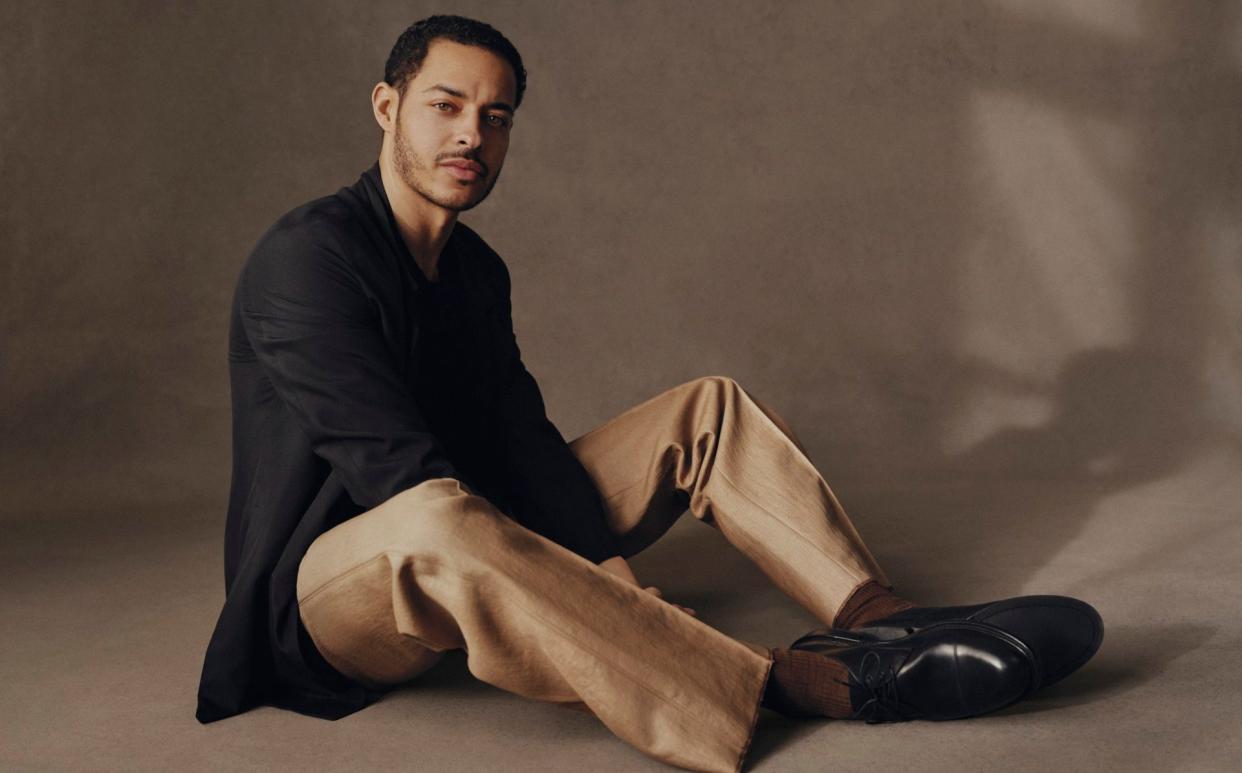
Last year, while scrolling through the film selection on a longhaul flight, Daryl McCormack came across the title that made his name, Good Luck to You, Leo Grande. He kept scrolling, tickled by the idea that a nearby passenger might watch it. A while later, he got up to walk to the loo. Making his way down the aisle, he was met by a sea of 12in renderings of himself.
If you saw the film (which earned McCormack a Bafta nomination last year), you’ll know he plays a sex worker hired by Emma Thompson to give her her first ever orgasm, and spends much of it in various stages of undress. ‘I see people watching it. And then I get to the bathroom and there’s already someone in there so I’m trying to kill time, and I look back and just see people look from the screen up to me and they’re like, “Wait…”’
Of all the odd experiences that must come with the first flutter of fame, catching strangers watching you in flagrante on a flight surely ranks among the more esoteric, but McCormack is slowly growing accustomed to this sort of thing. His mother texted him yesterday: ‘Daryl! Have you seen this?!’ forwarding a photograph of an enormous billboard of his face hanging above Penn Station in New York – an advertisement for The Woman in the Wall, last year’s BBC thriller about the Magdalene Laundries, in which McCormack starred opposite Ruth Wilson. ‘She still gets excited by that stuff,’ he says, smiling sheepishly. ‘My instinct is to go, “Yeah, yeah, it’s about the work,” and it is. But I also think it’s a nice reminder for myself to be excited by it all.’
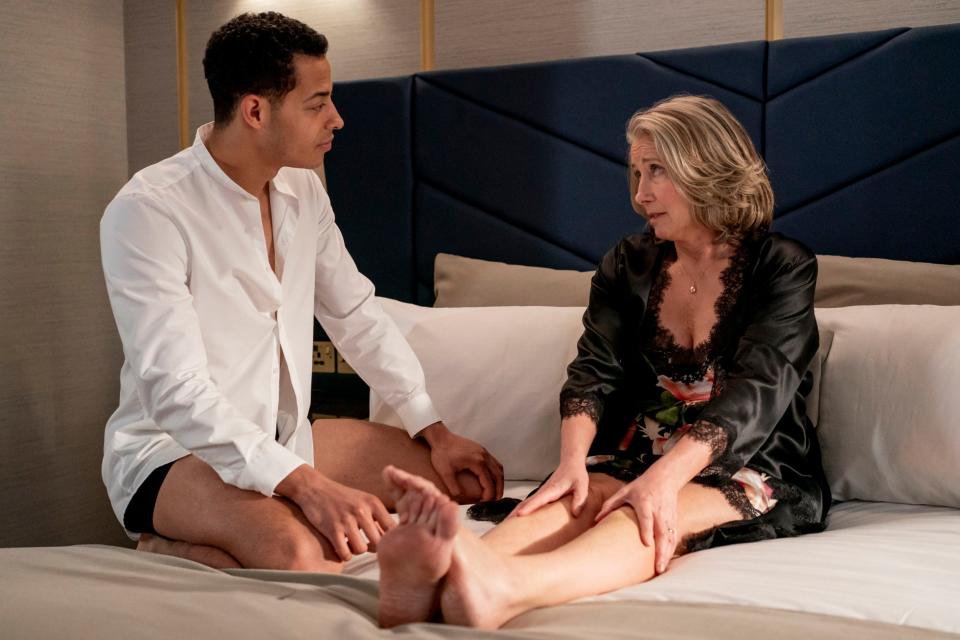
We meet for breakfast on a cold, wintry morning. McCormack is meandering through a busy east London members’ club in search of a bowl of granola. He has his head turned by a plate of French toast piled high with whipped cream, raspberries and syrup. He wears dark Levi’s jeans, boots and an ecru linen shirt; over it, a very soft jumper roughly the shade of the oat Americano he orders. He settles into a corner booth, folds his scarf neatly beside him and places a vintage Pentax camera on top. If Richard Curtis were sitting at the next table, he’d have no choice but to cast him as the lead in his next romantic comedy.
‘Oh, my Pentax? I got this as a gift from my friend. She’s a photographer in France but she brought me to a little shop in Paris and got me this,’ he says, only serving to complete the effect. ‘I like taking shots now and again.’ He used it to photograph my friends’ wedding at Hackney Town Hall last week. They met at an acting class, he tells me – the rare real-life meet cute. ‘I think everyone hopes to have a story that reminds us more of how it used to happen,’ he says. ‘“She dropped her book on the Tube and we both reached for it…”’

McCormack is part of a very particular group at the moment. If 15 years ago you had to be English to succeed in Hollywood, these days it pays to be Irish. From seasoned actors such as Cillian Murphy and Andrew Scott, to man of the moment Paul Mescal and up-and-coming stars such as Alison Oliver and Barry Keoghan, most of the season’s biggest releases have featured top Irish talent. ‘The thing about Irish actors is we all know each other,’ says McCormack. ‘We’ve all hung out. We bump into each other.
‘I met Paul outside an audition years ago for a play in the Abbey [the National Theatre of Ireland]. So I met him before Normal People. He met me before Leo Grande. And then last year we were nominated for Baftas, both of us. That’s kind of wild.’
I’m disappointed to hear there isn’t an Irish actors’ WhatsApp group. ‘I would love that,’ he says, laughing, tucking into his French toast. But McCormack – who is about to star alongside another of his fellow Irish talents, Louisa Harland (best known for playing Orla in Derry Girls), in a production of Long Day’s Journey into Night led by Brian Cox and Patricia Clarkson – is aware of the elite group he finds himself in. ‘It feels really palpable that there is some sort of moment,’ he says. There is a ‘comfort’ in coming up alongside familiar faces too. ‘Knowing that we all more or less came from Dublin at some point… I just remember bouncing around Dublin going to see as many plays as I could and hanging out with these people. So to see us in different circumstances now is surreal but there’s something special about it.’
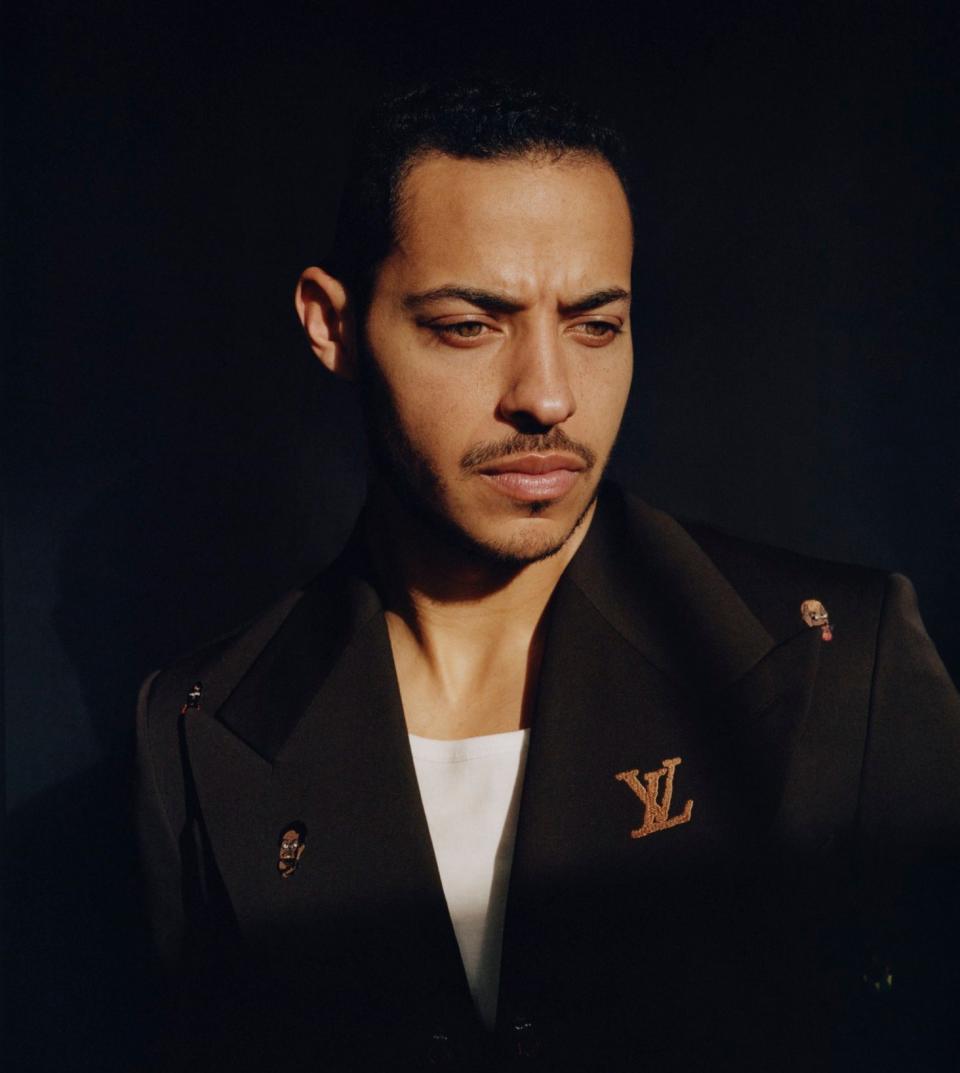
It was only when McCormack, 31, came to London that his Irishness started paying off. Growing up biracial (his father is African American, his mother Irish), he rarely saw people on screen who looked and sounded like him. ‘The only person that springs to mind is Ruth Negga,’ he says. After drama school, the realisation dawned that he might struggle to find roles, particularly as Irish stories so often centre on families. ‘You start to notice casting is related to the stories that we tell… It’s difficult to see your place within that when you know that the majority of the country doesn’t particularly look like you. There is a limitation there, unless you’re going to do some sort of colour-blind casting. And even then, I don’t know, you want to make sure you’re in something for the reason that they believe in you as an actor and they’re not just trying to squeeze you in.’
To tick a box? ‘Exactly.’ He is still ‘reluctant’, he says, ‘to make my work purely on the basis of my race’.
‘I never want the idea of race to be so primary in a story. I want to get into projects regardless of…’ He pauses. ‘I want freedom from that.’
‘For me my race has always been a contradiction,’ says McCormack. ‘I’ve existed in Ireland as someone who doesn’t look particularly Irish. And I surprise people when I’m in the UK or the US with an Irish accent. So there has always been this grey area.
‘I think for me, there is something about going into work where I’m existing purely as a person telling a story. I just get a lot of freedom from those stories.’
He came to London in the hope the ‘doors might be a bit more open’. He was right.
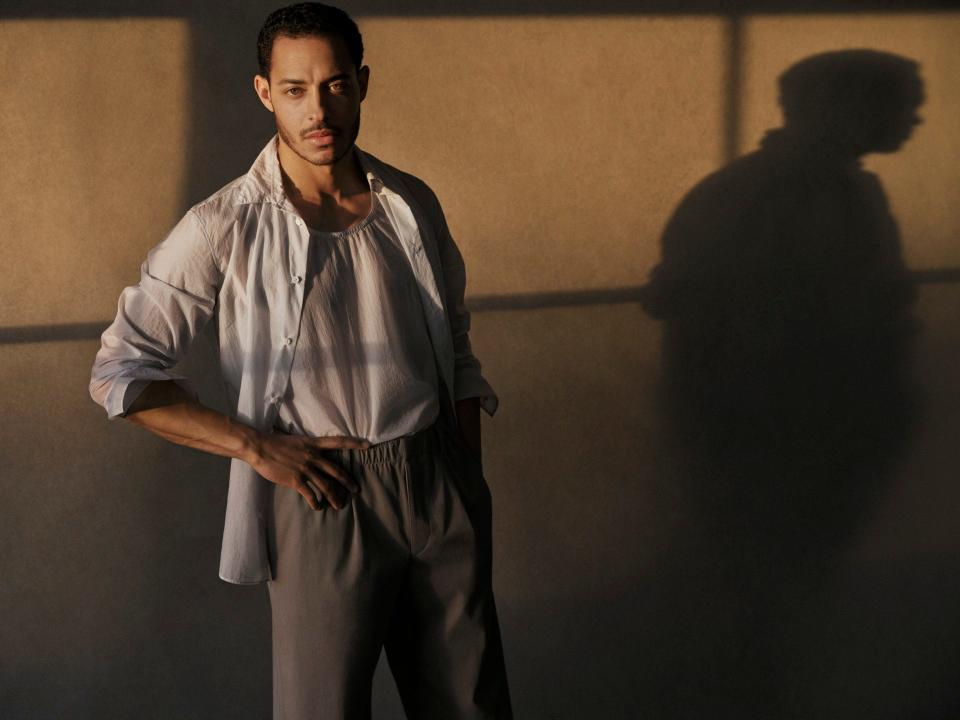
In his first year he had a small part as a photographer in A Very English Scandal, with Ben Whishaw and Hugh Laurie, then a stint in The Lieutenant of Inishmore at the No?l Coward Theatre. By 2019 he’d been cast in Peaky Blinders. Then came Good Luck to You, Leo Grande and Bad Sisters – the black comedy written by his former neighbour, Sharon Horgan. ‘We lived beside each other for three years,’ he says. ‘Sharon always has this twinkle in her eye. She’s just ready to laugh at any moment. There’s an amazing levity in her spirit that I just think is very infectious to be around.’
When he first met Thompson, he was amazed by how lightly she carried her fame – and by the Oscars in the downstairs loo (complete, he says, with a can of Brasso metal polish – or ‘Oscar polish’, as she calls it). They’d go for walks on Hampstead Heath when preparing for the film. ‘I was shocked at how she was able to just blend in amongst people. She just put the focus everywhere else. She could seamlessly slip by. She didn’t have to wear a hat or anything like that. It was almost too late by the time people recognised her. They’re like, “Was that…?” And she’s gone.’
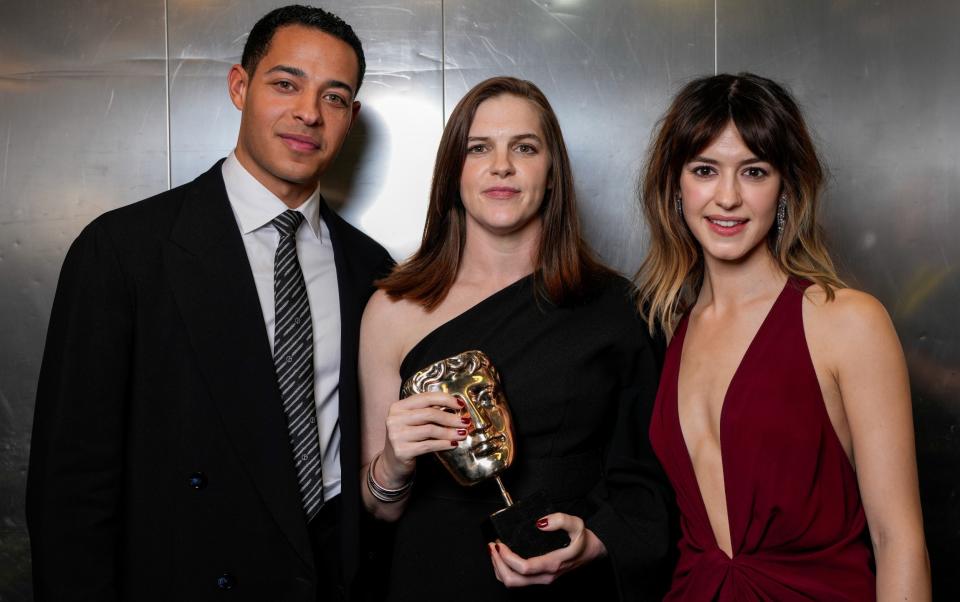
Since the film came out, there have been times, he says, when people have looked at him ‘as if I am Leo Grande’. On dates? No, he’s single and ‘focusing on myself’. ‘You can get caught up in the dating culture,’ he says. ‘One thing I’ve recognised is you’re searching for something. You’re searching to fill a deeper thing in yourself, and I’ve found the more you have that healing with yourself the less you feel like you need to go and find a connection with others… Maybe I’ll find love at some point, but I feel like I’ve not missed the beat of getting to know myself.’
The film was an examination of the shame people carry around sex. For McCormack, it was a reminder of the importance of connecting to ‘something deeper’. ‘Having sex with someone can be very easy in some regards, but being vulnerable before someone is a different thing,’ he says. ‘And sometimes they don’t always happen at the same time… The heart of that film is something I don’t think I’ll ever not be proud of.’
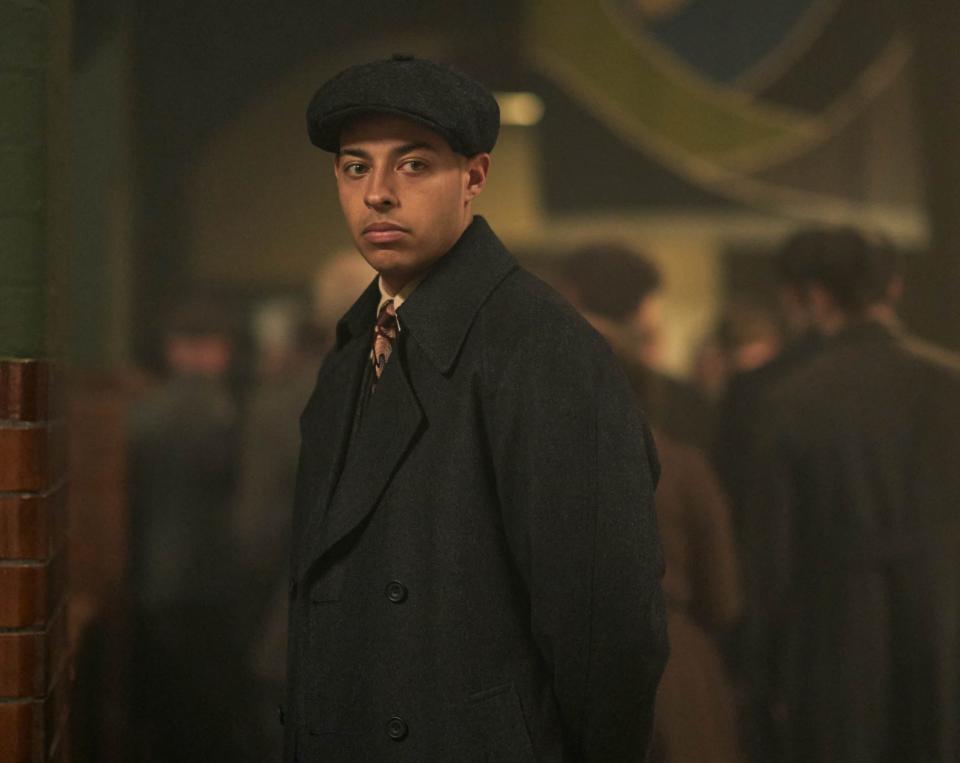
It’s perhaps no surprise that he has felt so at home working alongside powerhouse women during the past couple of years. He is very close to his mother, Theresa, an addiction counsellor, who brought him up on her own in the small town of Nenagh, County Tipperary. ‘Naturally, growing up with a single parent and no other siblings, you form a very strong bond,’ he says. ‘Me and my mum are very much like buddies. She was young as well, she was in her early 20s when she had me... We could talk to one another like friends.’
As a child, he could sense when times were tough. ‘She would confide when she was struggling. We had that bond. We didn’t grow up with a lot of money, obviously. It was just me and her. And there were definitely times when I felt, “Oh, my mam is having to hold all of this on her own... I think as a kid I became aware of where I could help her in terms of not expecting a whole lot, because I could sense that she’s carrying a lot already as it is.’
As he grew up, his relationship with his father, Alfred (whom his mother had met on holiday), and his American family got stronger. He sees them more now he has ‘the means to travel’. He adores his American grandfather, Percy, bringing him to the Baftas last year. This month Percy will travel to London to watch his grandson on stage in the first week of Long Day’s Journey into Night. ‘This is where the younger part of me is pinching myself and going, “Man, how have I managed to get to a place where I’m on a West End stage with someone like Brian?”’
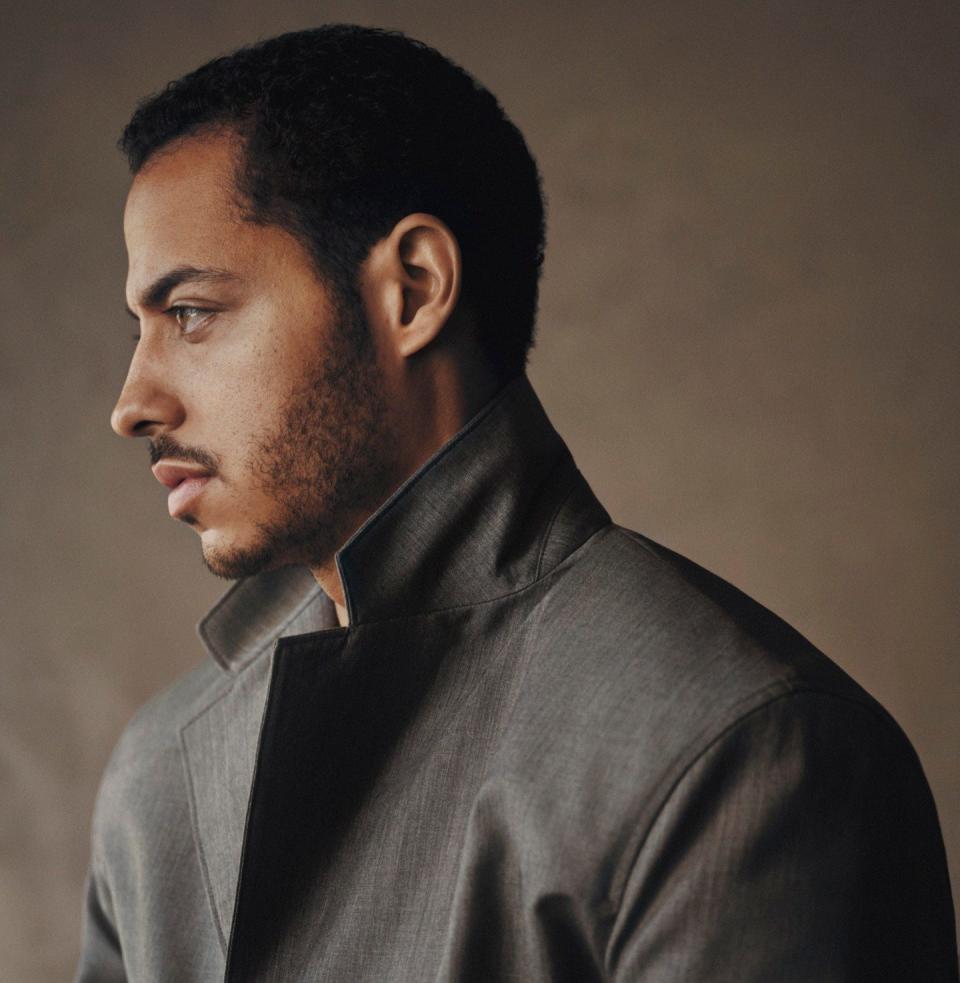
A Succession fan, he is thrilled to be working with Cox. ‘He has a reputation of no bullshit, which I think is really refreshing, and I think you get less of it nowadays. I get a sense that he could say anything. You could just be like, “OK, Brian is off,”’ he says, laughing.
McCormack plays James Tyrone Jr in the Pulitzer Prize-winning play by Eugene O’Neill, which takes place over the course of a single day in the seaside Connecticut home of the Tyrones, a dysfunctional family that was based on the writer’s own. Rehearsals are due to start the week after we meet, and McCormack is having lessons with a dialect coach to nail the accent. He has the text down, though. ‘I actually wrote my thesis on Eugene O’Neill,’ he says, laughing. ‘So I feel like I’ve done quite a bit of prep already.’
We get the bill – he has a fitting to get to for various Bafta dinners. He learnt, amid the mayhem of the last year, always to bring an old friend along to fancy industry events. Often, it’s the only way he can find time to catch up. ‘It’s funny because you’re looking at someone you used to sit in a fish-and-chips shop with, and now you’re sitting at a fancy dinner.
‘I think it’s about appreciating all of those things that are nice, but at the same time, I’m always trying to reclaim a simple life.’
Long Day’s Journey into Night is at Wyndham’s Theatre, London WC2, 19 March-8 June
